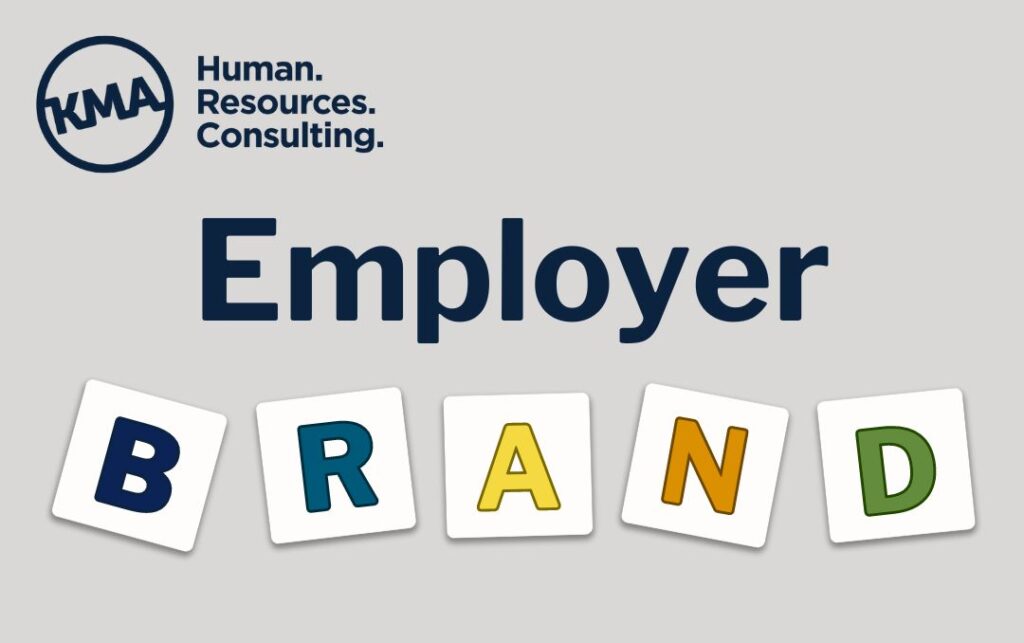 By Miranda Mishaan, Marketing and Events Specialist
By Miranda Mishaan, Marketing and Events Specialist
In the fast-paced and ever-evolving business landscape, companies are beginning to understand that their success is deeply rooted in the strength of their brand. While traditional branding efforts remain essential, a new catchphrase has entered the conversation: employer branding. Gone are the days when branding was solely focused on products and services; today, businesses are recognizing the significance of their employees as their most valuable brand ambassadors. In this article, we will explore the importance of employer branding and how it empowers businesses to thrive in a world where authenticity and trust are paramount.
Why Employer Branding Matters
Customers and clients are looking for more than just products and services. They want to connect with real people behind the brand– individuals they can relate to and trust. This shift in consumer behavior has elevated the importance of employer branding to new heights. According to Glassdoor, 75% of active job seekers are more likely to apply to a job if the employer effectively manages its employer brand.
In a competitive job market, attracting and retaining top talent has become a top priority for businesses. Employer branding serves as a potent magnet, drawing in skilled professionals who resonate with the company’s culture and values. A company’s employees are the byproduct of their brand – their values, skills, and passion collectively shape the brand’s identity. A positive and strong employer brand can have an enormous impact in your organization’s success in recruiting and retaining top talent.
Here are five guidelines for developing your employer strategy and demonstrating that you’re an employer of choice.
1. Humanize Your Brand
Refined, scripted corporate communication is stale. Customers and clients want to support a brand that is genuine. Employees are closest to your brand; they live and breathe the company’s mission and vision. Encourage your employees to be themselves and openly share their experiences, as it creates an emotional connection with customers and future employees. This connection, in turn, breeds trust – a pillar of long-term customer loyalty.
2. Showcase Your Best Asset — Your Team — Through Social Media
A company’s social media presence is more important than ever before. The importance of employer branding only grows with this trend, enabling employees to become brand ambassadors on their personal social media accounts. By sharing company updates, behind-the-scenes moments, and success stories, employees can significantly expand the brand’s reach. This organic and authentic approach leaves a longer lasting impression than traditional advertising, and it’s essentially free.
Here a few post ideas to try:
- Behind-the-scenes photos of your team working together
- Employee spotlights that showcase their contributions, fun-fact, or unique story
- Employee testimonials (bonus points if it’s video content)
- Community involvement (including volunteering, events, or fundraisers)
- Content from company-hosted events
- Day-in-the-life of an employee or department
3. Nurture a Positive Work Environment
Employer branding is not just about the perceptions of others; it should also be reflected through the inner workings of an organization. When employees feel proud to be associated with the brand, they are more likely to share their experience with others. This has a positive impact on employee retention, but is also valuable for attracting passive candidates. Fostering employee wellbeing should be included in any organization’s people strategy, and if you want to improve yours, reach out to KMA today.
4. Create Your Employee Value Proposition (EVP)
An EVP represents everything of value employers provide to their employees in exchange for their time, skills, and efforts and is part of your employer branding. When cultivating your employee brand to recruit talent, clearly communicate all that you offer a potential employee. These offerings help attract and retain employees and contribute to your competitive advantage as an employer. Your EVP represents your culture and what sets you apart from other employers. Use this to your advantage when developing applicant and employee-centric content.
5. Embrace Innovation and Adaptability
Adaptability and innovation have become indispensable traits for any successful organization, and being able to navigate tough situations and come out on top signals to employees that they are working in a stable environment. Job seekers also want to work for a company with a culture that encourages fresh ideas from all levels. Showcasing your company’s willingness to grow and change is incredibly appealing to candidates and customers alike. These initiatives should be at the forefront when communicating your employer brand.
Employer branding has emerged as a powerful tool that brings authenticity, trust, and a competitive edge to businesses, but an employer brand is not one-size-fits-all. Listen to your employees, learn about what is most important to them, and adapt. Your employees – and future employees – will reward you for doing so.
